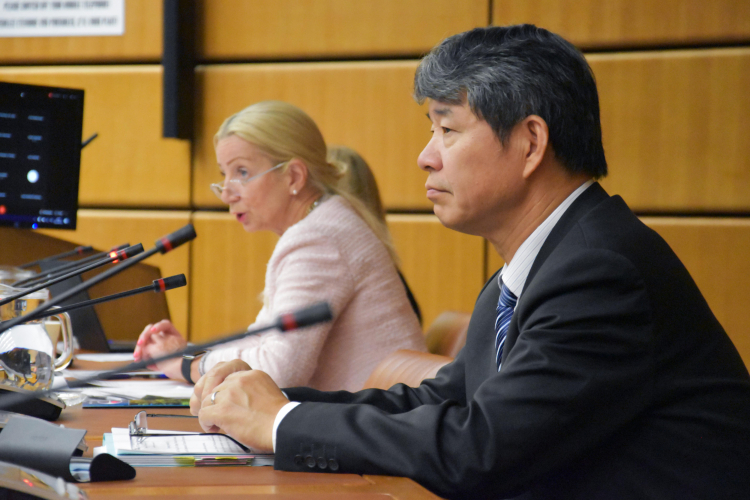National Liaison Officers (NLOs) and Assistants (NLAs) play a central role in the design and delivery of the technical cooperation (TC) programme. On 23 September, more than 40 NLOs and NLAs from 32 countries in Europe and Central Asia gathered to review, assess and adapt ongoing TC activities to face new and emerging challenges in the region, such as zoonotic diseases, marine pollution and environmental monitoring.
On the margins of the 65th IAEA General Conference, the bi-annual event reviewed 180 ongoing national and regional TC projects, their implementation status, as well as achievements. Referencing the IAEA Director General Rafael Grossi, Eve-Kulli Kala, Director of the TC Division for Europe (TCEU), said, “Despite the challenges of the pandemic, the IAEA did not stop for one minute in its delivery of support through the regional technical cooperation programme in Europe and Central Asia.” Kala acknowledged the NLOs who volunteered as members of a working group to revise the existing Europe Regional Strategic Profile (RSP), which establishes priority activities to implement and identifies emerging opportunities to leverage.
Sandra Steyskal, Section Head in the Division for Europe, presented the implementation status of all ongoing national and regional projects of the 2020-2021 technical cooperation cycle. She highlighted the measures adopted to build resilience and to adapt to the circumstances caused by the COVID-19 pandemic, including the organization of virtual meetings and smaller, in-person events. “Despite the pandemic, so far in 2021, 95 virtual and 24 in-person events were implemented, 151 procurement requisitions were approved and 53 home-based assignments were organized for experts,” said Steyskal. NLOs and NLAs were also briefed on the implementation of the IAEA’s ZODIAC initiative. In Europe and Central Asia, 24 countries have received support in the development of their laboratory capacities to diagnose COVID-19 using RT-PCR testing kits.







